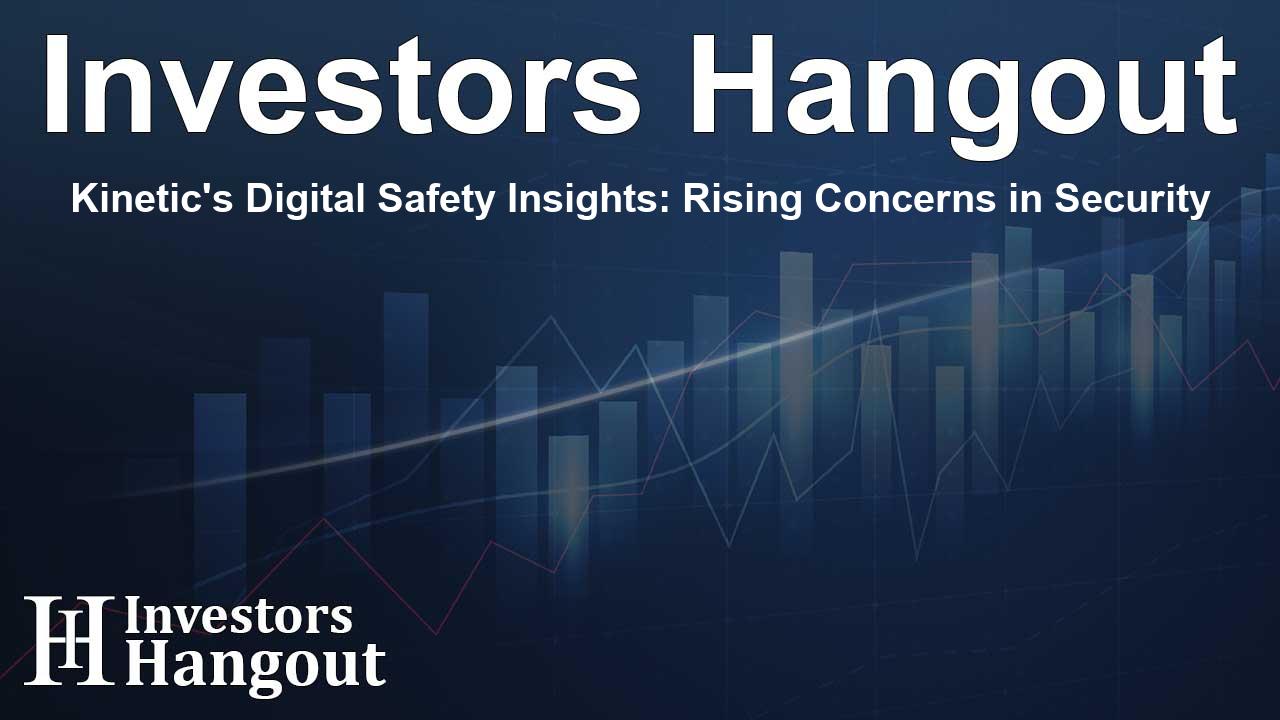Kinetic's Digital Safety Insights: Rising Concerns in Security

Understanding Digital Safety Concerns in Today's World
In an age where technology deeply intertwines with our daily lives, the need for robust digital safety measures has never been more paramount. Recent insights from Kinetic, a leading provider of fiber internet services, highlight alarming trends regarding consumers' perceptions of their online security. The Kinetic Digital Safety & Privacy Report reveals that only a small fraction, just 22%, feels secure about their digital defenses, while a staggering 77% express concern over their internet safety.
Artificial Intelligence: A Growing Source of Uncertainty
As artificial intelligence continues to evolve, so do the anxieties surrounding it. 60% of surveyed individuals report feeling unsafe online, primarily due to the unpredictable nature of AI developments and a more perilous global landscape. This surge in caution aligns with a noticeable hesitance among users regarding sharing personal information, especially in less urbanized areas. The reluctance to trust technology is more pronounced among consumers in rural settings, underscoring the differing perspectives on digital security across geographical demographics.
The Priorities of Digital Security
The report outlines several top concerns that consumers face: a significant 72% fear large data breaches, while 69% are wary of storing personal data in countries outside the U.S. Additionally, 64% express unease over targeted advertising practices and 61% cite AI advancements as a firsthand threat. Economic instability further exacerbates these worries, as 51% of respondents indicate financial uncertainties contribute to their apprehensions about digital security.
Barrier to Effective Digital Security Measures
Interestingly, while the awareness of potential risks is high, proactive steps to enhance personal cybersecurity are lagging. Only 37% of individuals indicated that they regularly update their passwords, and a mere 27% make an effort to read privacy policy updates. This lack of action reflects a broader feeling of fatigue regarding digital security—a desire for effortless protection without the constant burden of monitoring and manual interventions.
Addressing Consumer Needs for Digital Protection
Kinetic’s findings reveal a significant gap in consumer action due to various obstacles faced when it comes to implementing better security practices. About 37% attribute their inactivity to a lack of technical know-how, while 32% cite the cost of security tools as a deterrent. Furthermore, 28% expressed a sense of confusion over where to begin, emphasizing the demand for user-friendly, automated solutions that streamline protection for everyday users.
Trust in Technology Varies by Demographics
A closer look at specific demographics reveals intriguing insights. While consumers in rural and suburban areas exhibit higher distrust towards new technologies compared to those in urban environments, younger generations, particularly Gen Z, display more confidence in AI systems. In this study, 29% of Gen Z respondents indicated a willingness to trust AI compared to less than 15% of older generations such as Millennials, Gen X, and Boomers, illustrating a generational divide in attitudes toward emerging tech.
Kinetic’s Commitment to Digital Security
Despite these challenges, Kinetic remains steadfast in its commitment to ensuring consumer security through reliable, innovative technology. The company's infrastructure, built on a secure fiber-optic network, aims to meet both current and future digital safety needs. Kinetic actively develops platforms designed to prioritize data security while enhancing internet safety for both residential and business clients.
Frequently Asked Questions
What major concerns did Kinetic's report highlight regarding digital safety?
The report revealed that consumers are primarily worried about data breaches, targeted ads, and AI advancements affecting their security.
How confident do consumers feel about their digital security measures?
Only 22% of consumers believe their digital security measures are effective, indicating widespread concern and anxiety.
Why do many consumers fail to implement basic digital security practices?
Consumers often cite a lack of technical knowledge, the cost of security tools, and uncertainty about where to start as significant barriers.
How does consumer trust in technology differ by region and age?
People in rural areas tend to distrust technology more than those in urban environments, while younger generations like Gen Z exhibit more trust in AI compared to older demographics.
What solutions is Kinetic providing to address digital security concerns?
Kinetic is committed to offering intuitive, automated technologies that help protect users without necessitating constant vigilance or manual updates.
About The Author
Contact Riley Hayes privately here. Or send an email with ATTN: Riley Hayes as the subject to contact@investorshangout.com.
About Investors Hangout
Investors Hangout is a leading online stock forum for financial discussion and learning, offering a wide range of free tools and resources. It draws in traders of all levels, who exchange market knowledge, investigate trading tactics, and keep an eye on industry developments in real time. Featuring financial articles, stock message boards, quotes, charts, company profiles, and live news updates. Through cooperative learning and a wealth of informational resources, it helps users from novices creating their first portfolios to experts honing their techniques. Join Investors Hangout today: https://investorshangout.com/
The content of this article is based on factual, publicly available information and does not represent legal, financial, or investment advice. Investors Hangout does not offer financial advice, and the author is not a licensed financial advisor. Consult a qualified advisor before making any financial or investment decisions based on this article. This article should not be considered advice to purchase, sell, or hold any securities or other investments. If any of the material provided here is inaccurate, please contact us for corrections.
